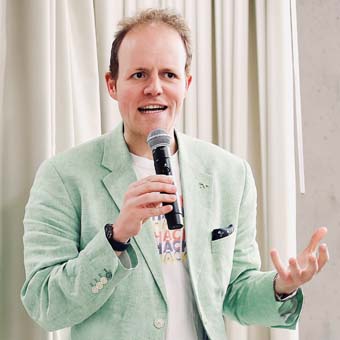
At the beginning of August, ST took the pulse of the tourism industry nationwide and asked for initial impressions of the summer vacations. The feedback came mainly from tourist regions and destinations in both mountainous regions and cities.
Weather and storms had a major impact
Wet and cold weather in early summer did not bode well for the start of the summer season. And the major storms in June on the southern side of the Alps and in many other mountain regions did the rest. Ticino in particular, as well as parts of Graubünden and Valais, were affected by cancellations and, above all, a lack of spontaneous bookings. Many day trips also failed to take place, which is particularly devastating in regions where the Swiss domestic market and the markets in neighboring countries are large. "Compared to June last year, the expected decline was noticeable, and we expect a similar result for July," says Angelo Trotta, Director of Ticino Tourism. The seasonal monitoring of Cableways Switzerland also speaks of a challenging summer for the summer business of mountain railroads up to the end of July.




Change in weather brings a good mood
With the improvement in the weather, confidence quickly returned in many places. Monika König, Head of Marketing & Communication at Aletsch Arena AG (VS), regrets that some hiking trails were still closed at the start of the season due to the snow. However: "The current high temperatures are driving more and more guests into the mountains - an opportunity for mountain tourism".
Some destinations are reporting almost full capacity utilization for July and are expecting a very good summer season. For example, Marc Ungerer, Managing Director of Jungfrau Tourismus AG: "The summer is fantastic - at least at last year's level, if not better. Not only in the larger resort destinations, but also in Mürren and the Haslital, for example". This also applies to Zermatt, which was also affected by the storm in June: "Zermatt has enjoyed the best summer season conditions and normal operations for weeks. The destination has recovered quickly from the dip caused by the two storm weekends at the end of June and the forecasts for the rest of the summer season are promising," reports David Taugwalder, Head of PR & Communications at Zermatt Tourismus.
This was not least thanks to the guests from overseas, whose importance was once again demonstrated by the weather conditions: long-distance market trips take place either way, with good or bad weather.
City tourism works regardless of the weather
Large cities such as Basel and Zurich in particular are reporting no impact from the June weather, partly due to their "weatherproof" attractions such as museums. "We recorded the strongest June ever. Thanks to a successful Art Basel and also thanks to many Swiss guests - Basel has been able to position itself as an attractive leisure destination in recent years, especially among the Swiss public," says Letizia Elia, Director of Basel Tourism. In Zurich, major events such as the Taylor Swift concerts and the Street Parade ensured high and also very diversified demand. And the cities in western Switzerland are also satisfied - for example in Montreux: "The hotels are doing better this summer than last summer," explains Grégoire Chappuis, Head of Marketing & Communication at Montreux Vevey Tourism.
Challenges overseas
Tourists from North America are still traveling in large numbers across the country, but this trend is likely to slow down slowly but surely. "International and American tour operators are warning us that US travelers are slowly using up their overseas vacation budgets due to the pandemic," says Martin Nydegger, ST Director - despite strong figures from North America.
And China in particular is missing from Asia this summer too - around half of hotel overnight stays in 2019 came from this market. The industry is reporting hardly any Chinese guests for the summer and fewer Asian guests in general - there is still a reluctance to travel from Asia. This also contributed to the fact that there were no bottlenecks at the popular Swiss tourist attractions this summer.




Switzerland Tourism (ST)
ST is a federal corporation under public law and is tasked with promoting tourism demand for Switzerland as a vacation, travel and conference destination in Switzerland and abroad. The focus is on the development and implementation of effective marketing programs and the profiling of Switzerland's strong, classic and modern tourism brand both nationally and internationally. ST works in close cooperation with the tourism industry, which contributes around half of the budget. The other half consists of federal funds. The organization works in a customer and market-oriented manner and is managed according to business management criteria. ST is present in 23 markets worldwide with around 280 employees (255 FTEs), spread across 36 offices.












 iWay is the main sponsor of the first edition of "Walk of Dreams", a walk that will take place from September 25 to 29. This special event aims to bring people together to think about their own dreams, talk about them with others and raise funds for disadvantaged people at the same time.
iWay is the main sponsor of the first edition of "Walk of Dreams", a walk that will take place from September 25 to 29. This special event aims to bring people together to think about their own dreams, talk about them with others and raise funds for disadvantaged people at the same time.
















